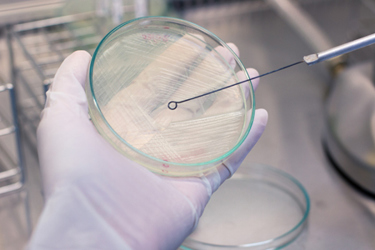Rapid Microbiological Methods In Quality Control Of Sterile Drugs
By Karolina Kromkowska, Microbiology Specialist

Ensuring sterility in pharmaceutical production is one of the most critical safeguards for patient safety. Traditional microbiological testing methods — such as bioburden assessments, sterility checks, and environmental monitoring — have long served as the foundation of quality assurance. However, their reliance on culture-based techniques introduces challenges, including extended incubation times and dependence on microbial growth conditions. These limitations have driven the development of rapid microbiological methods (RMMs), which leverage advanced detection technologies to deliver faster, more accurate insights into potential contamination.
RMMs encompass a range of approaches, from growth-based monitoring systems to direct analysis of intact cells and molecular characterization of microbial components. By reducing time-to-result, these methods can enable earlier decision-making, decrease the risk of product loss, and improve manufacturing efficiency. Their potential for automation also addresses common issues such as operator variability and labor-intensive workflows. Importantly, regulatory agencies now recognize RMMs as acceptable alternatives to traditional methods, provided they are validated to demonstrate reliability and compliance with Good Manufacturing Practice standards.
Understanding how these methods differ, what benefits they offer, and the challenges they pose is key to evaluating their role in sterile product testing.
Get unlimited access to:
Enter your credentials below to log in. Not yet a member of Outsourced Pharma? Subscribe today.
